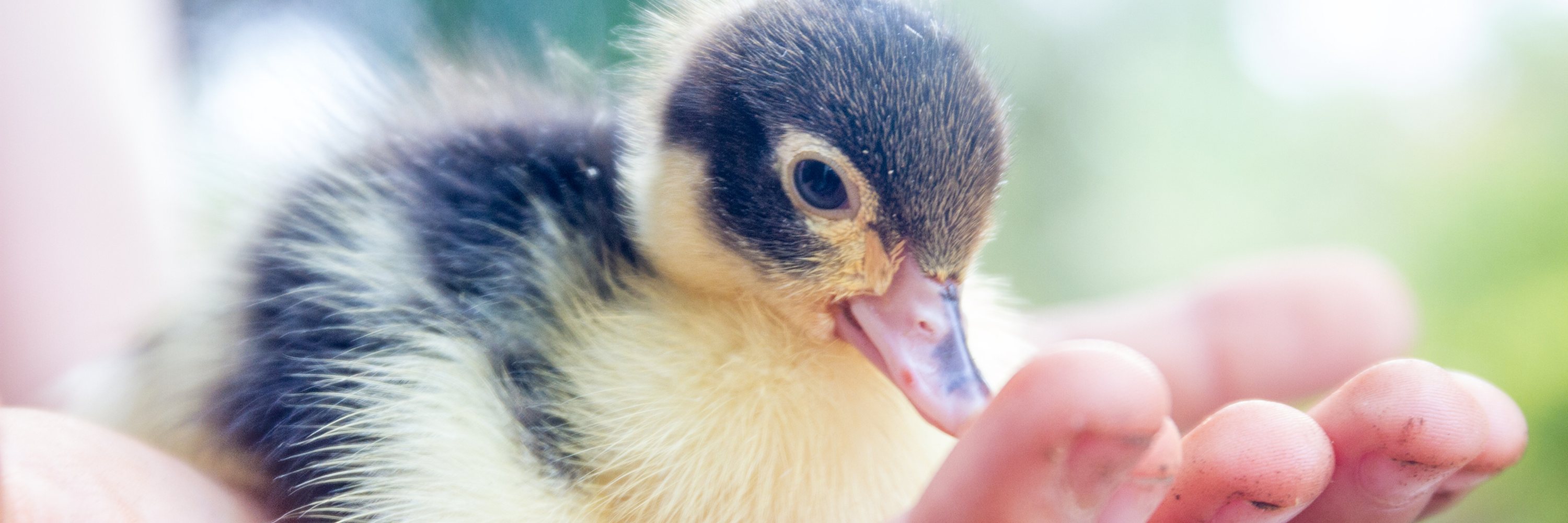
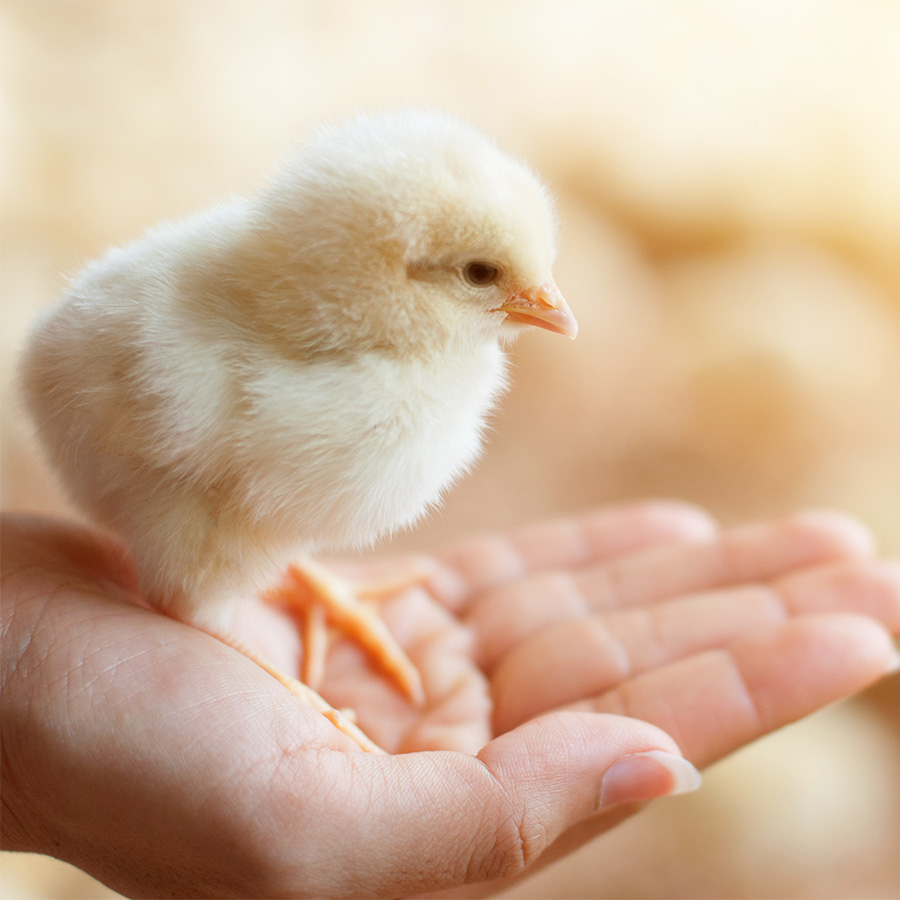
Our Top 10 Moments For Animals In 2022
By making donations, signing petitions and taking online actions for animals, you’ve achieved some incredible results for animals.
In 2022, together we impacted an estimated 201 million animals worldwide.
Here are 10 of the biggest moments for animals in 2022, including historic new laws, groundbreaking investigations, and major campaign milestones which take us closer to achieving more progress for animals in the future.
1. BBC Panorama: A Cow’s Life
In 2021, Animal Equality supporters donated to help Animal Equality’s investigators. All of that support led to a new investigation and the result was a 30 minute long episode on BBC1’s Panorama uncovering cruelty in the UK dairy industry. The episode, titled ‘A Cow’s Life: The True Cost of Milk’, has been watched by millions of people.
The episode showed disturbing undercover footage of deliberate violence and neglect on Madox Farm, in Carmarthenshire, South Wales, which holds over 650 cows and their calves. The footage also uncovered the cruel practice of separating cows from their baby calves within hours of birth, which many people are completely unaware of.
Within minutes of the episode going live, thousands of people were talking on social media about how they wanted to help. We saw comments from Peter Egan, Paddy McGuinness, Diane Morgan, Megan McCubbin and then Animal Welfare Minister, Zac Goldsmith MP, who all reacted to the episode.
Uncovering the truth to so many people was a major achievement. The media is not always willing to show animal cruelty to viewers, and when it does, it’s often in short news segments.
But together, we secured a half an hour episode during a primetime slot and the episode was seen by millions of people, uncovering a side of the dairy industry that has been hidden from public view for so long.
It was a watershed moment that has the potential to transform the nation’s relationship with the dairy industry.
2. Italy Bans Killing of Male Chicks
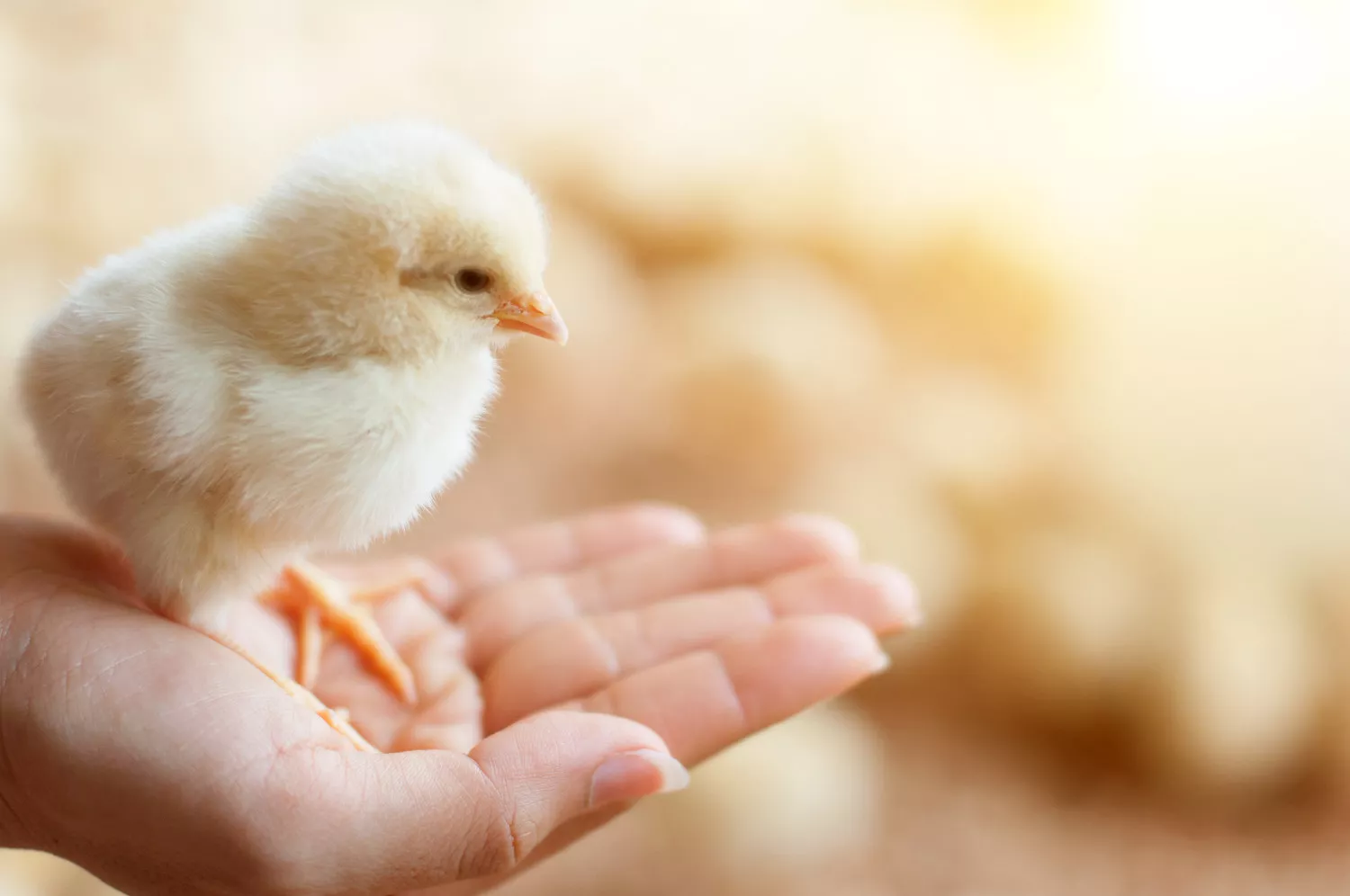
On 2nd August, the Italian Chamber of Deputies definitively approved an end to the slaughter of male chicks in Italy, marking a historic milestone in animal protection legislation in Italy.
Nearly 40 million chicks are suffocated or ground up alive every year in Italy by the egg industry because male chicks are unable to lay eggs. Italy has joined France and Germany in banning the practice which occurs in countries around the world.
Italy will work towards the ban which comes into effect in 2026 by promoting the introduction and development of ‘in-ovo sexing technologies’ that can identify the sex of chick embryos before they hatch, sparing millions of lives every year.
Animal Equality’s work has been so influential that it’s mentioned in the amendment itself. In 2020, Animal Equality launched a petition – now signed by over 100,000 individuals – urging the Government, as well as the egg industry, to put an end to this terrible massacre. The petition was released alongside exclusive images showing the cruelty of chick slaughter inside hatcheries.
A few days after the petition was launched, Coop – the largest supermarket chain in Italy – published a statement on its website in which it pledged to introduce in-ovo sexing technologies as soon as possible in order to save the lives of millions of male chicks within their egg chain.
Coop was followed by the trade association of egg producers, Assoavi, which also declared itself in favour of the introduction of in-ovo sexing technologies.
Animal Equality continued to campaign and many months later, we persuaded the Italian Government to act. This is a historic milestone that was made possible thanks to the commitment of Animal Equality’s kind supporters.
3. State of Hidalgo Introduces Most Comprehensive And Advanced Set Of Animal Protection Laws In All Of Mexico
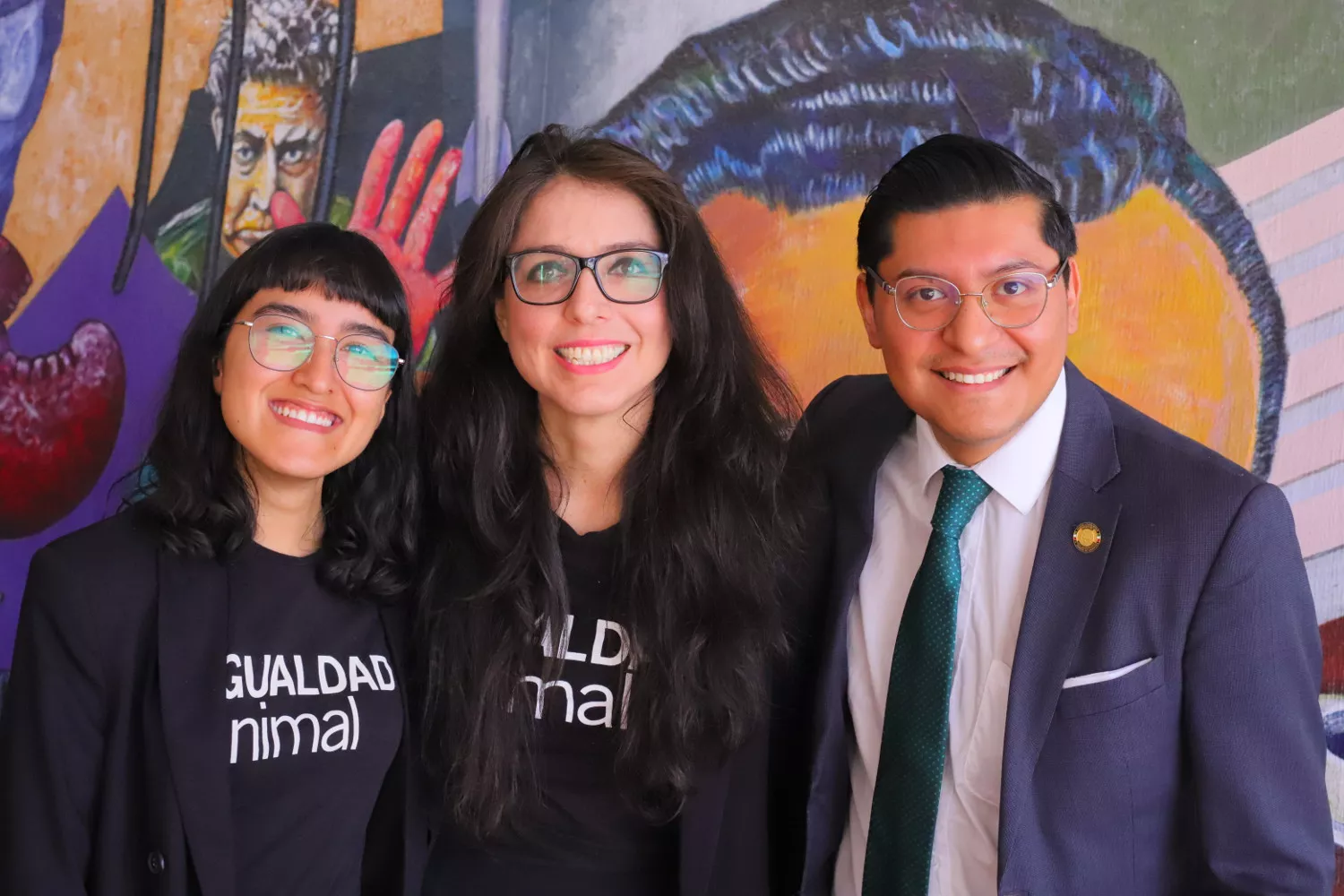
In June, the State of Hidalgo in Mexico introduced a whole host of bans, laws and criminal sentences for those who break the law in slaughterhouses. It’s the most comprehensive and advanced set of animal welfare laws in all of Mexico.
They include:
- Introducing CCTV to slaughterhouses.
- Criminalising the slaughter of animals without stunning, with fines and up to four years in prison.
- Banning the slaughter of cows who are in their late stages of pregnancy.
- Prohibiting illegal ‘backyard’ slaughterhouses, so only those with permission from the authorities can run slaughterhouses.
- Banning painful procedures such as tail cutting from being carried out on animals
The progress comes after major lobbying efforts by Animal Equality and its supporters, who promoted a petition calling for stronger laws and contacted members of the Hidalgo Congress with a series of actions in the five months leading up to the vote.
These efforts followed two major investigations released by Animal Equality showing sheep and pigs suffering violence and neglect inside slaughterhouses in the state.
This legal initiative is a part of a whole host of legal proposals put forward by Animal Equality in our ongoing campaign: Laws For Animals.
4. Animal Equality Represents Farmed Animals At UK Parliament
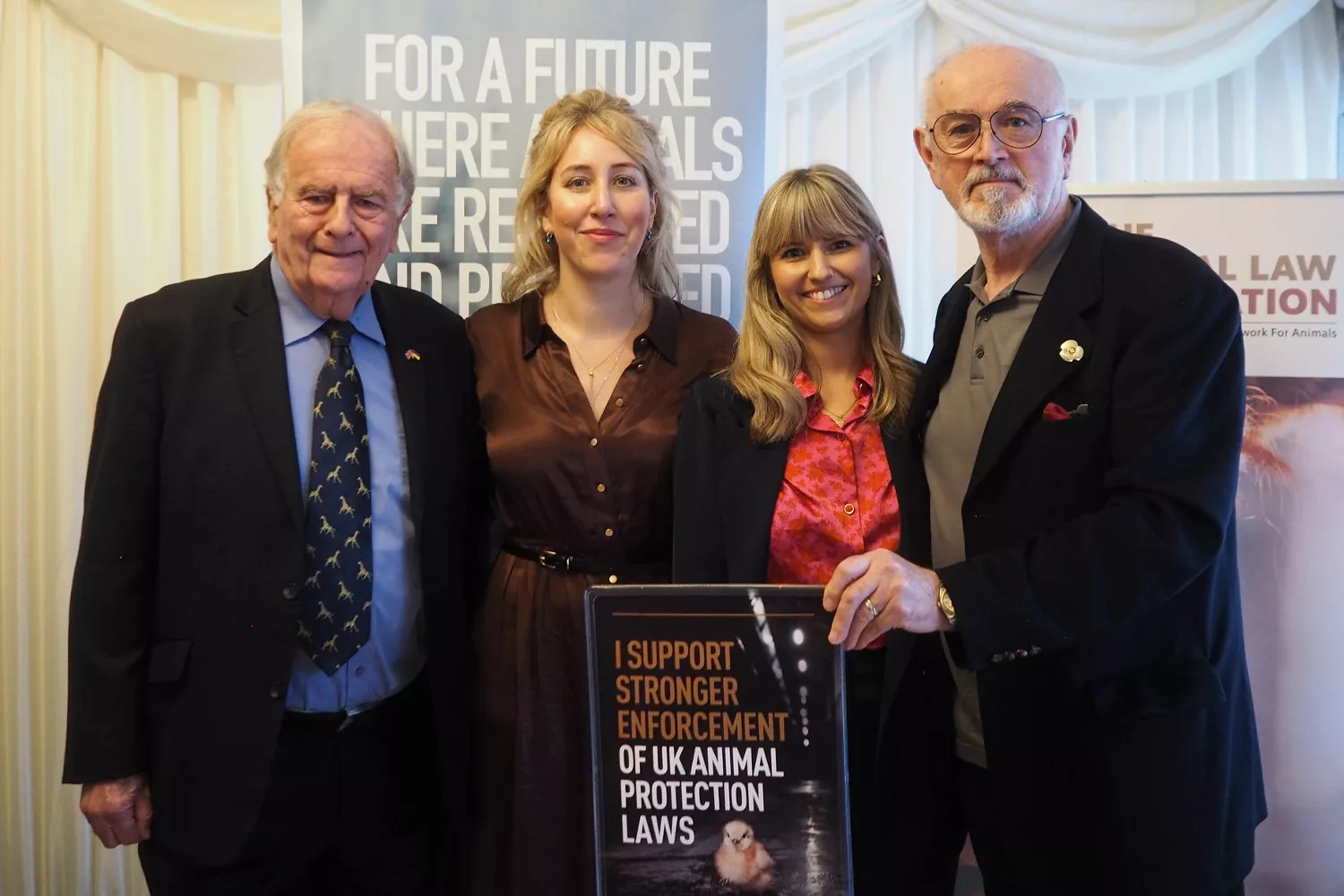
In November, Animal Equality launched a new campaign to address the UK’s failure to enforce animal protection laws and hold animal abusers to account.
Thousands of Animal Equality supporters have supported the campaign with petition signatures and donations and on 21st November, Animal Equality took that support to Parliament.
At the event, Animal Equality UK’s Executive Director, Abigail Penny, presented the findings from Animal Equality’s new report – created in collaboration with The Animal Law Foundation – into the UK’s failing animal protection laws and gave a speech urging MPs and Government officials to take action.
Over the years, Animal Equality has collected hundreds of hours of footage from inside factory farms and slaughterhouses showing farms breaking animal welfare laws without serious consequence.
Animal Equality’s investigators have documented:
- Pigs having their tails cut off routinely on farms without pain relief.
- Cows on dairy farms who can barely walk because they’re forced to walk day in, day out on concrete floors, carrying unnaturally high volumes of milk in their udders.
- Chickens who can’t stand up because their bones have buckled under their enormous weight. They’re unable to reach water and they die of thirst.
- Salmon who are slaughtered while still conscious.
The event is one of the first steps in a campaign which could impact millions of animals every year.
5. Brazil puts breaks on dangerous ‘Self-Control’ bill
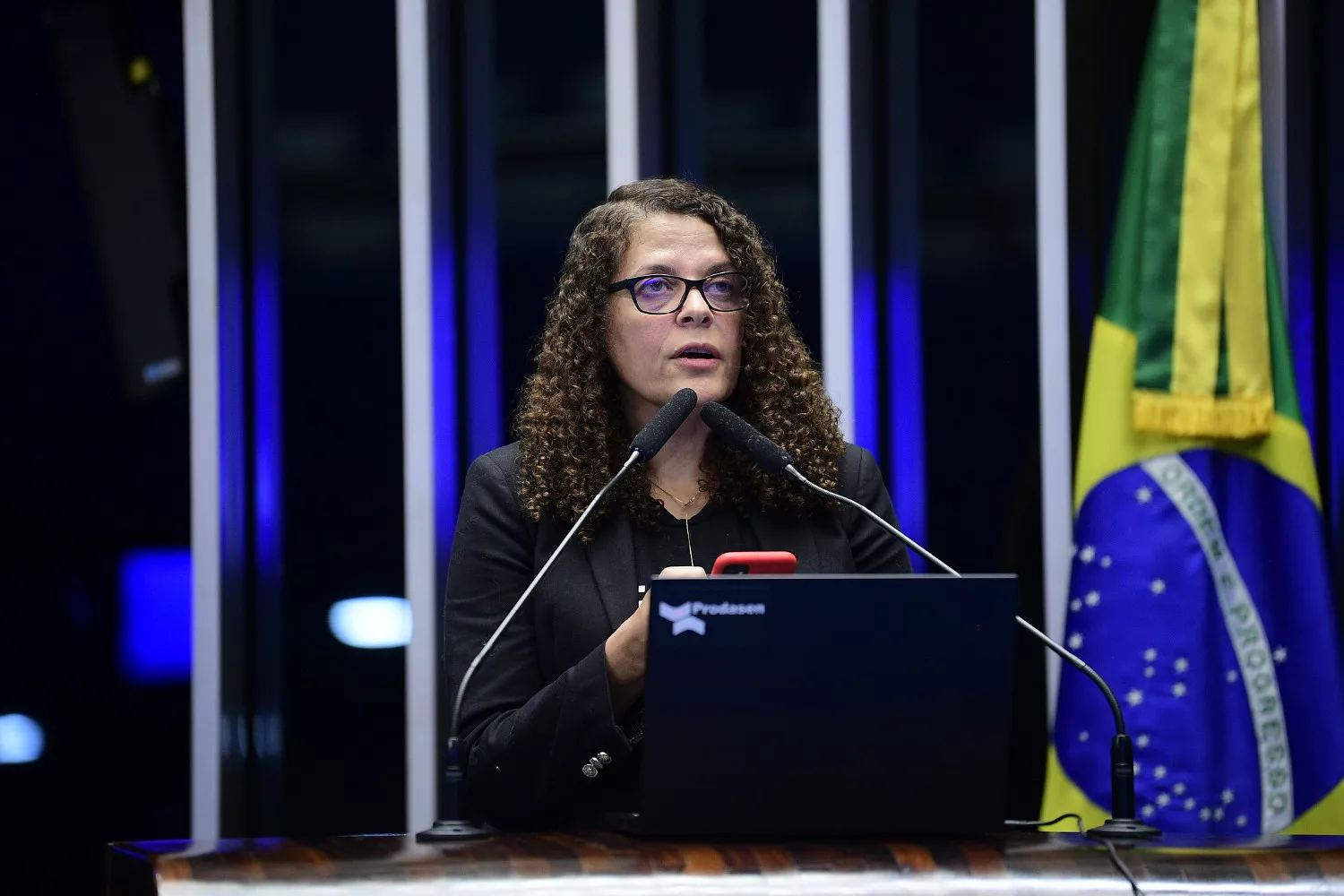
Earlier this year, the Brazilian Government tried to push through a dangerous bill known as the ‘Self-Control Bill’ which, if passed, will end Government inspections across the animal agriculture industry, including inside slaughterhouses.
The Bill threatens to leave millions of animals vulnerable to illegal and deliberate abuse in slaughterhouses across the country every year, so Animal Equality took immediate action to stop it.
In the weeks and months that followed, here’s what happened:
- Animal Equality investigators uncovered cruelty inside three Brazilian slaughterhouses showing workers subjecting animals to extreme violence.
- Animal Equality sent three letters to senators alongside 35 other organisations demanding that the Bill be debated in the Senate. Sixteen senators supported the call for a new debate to be held in a ‘plenary session’.
- Animal Equality’s supporters sent thousands of messages on social media to draw attention to the Bill and call for it to be stopped.
- Animal Equality held a public hearing in Sao Paolo bringing organisations together to organise and discuss the Bill.
- Animal Equality’s Executive Director in Brazil, Carla Lettieri, presented at a session held at the Brazilian Senate calling on Senators to put an end to the Bill.
At the time of writing, the Self-Control Bill is still being held back and there is hope it can be stopped for good. This would be a monumental achievement and would protect billions of animals from even greater cruelty and neglect inside slaughterhouses.
6. Actress Miriam Margolyes Joins Animal Equality To Launch New Campaign
Four months on from the dairy farm investigation which was published on BBC Panorama, Animal Equality launched a new campaign to help cows and calves who suffer in the dairy industry with support from award-winning British-Australian actress, Miriam Margolyes.
Many people are completely unaware that the dairy industry tears baby calves away from their mothers just hours after being born. This is a fundamental part of the dairy industry. The reason this happens is because, naturally, the calf would drink their mother’s milk, but this would mean there’s no milk for the dairy industry to sell to people, so the dairy industry tears them apart.
The separation is extremely distressing for the mother and her calf. Animal Equality has recorded footage of cows chasing their calves as they are taken away and crying out in the hope their calf will come back. But they never will.
Fortunately, change is already underway. An estimated one in three people in the UK now drink plant-based milks, which means less cows’ milk is produced and fewer cows and their calves are separated.
But we need change to happen faster. That’s why the new campaign calls on the Government to move subsidies away from the dairy industry and towards plant-based alternatives like oat milk and soya milk, and to support farmers in making the transition.
7. Scottish Government Introduces Fish Slaughterhouse Inspections For First Time
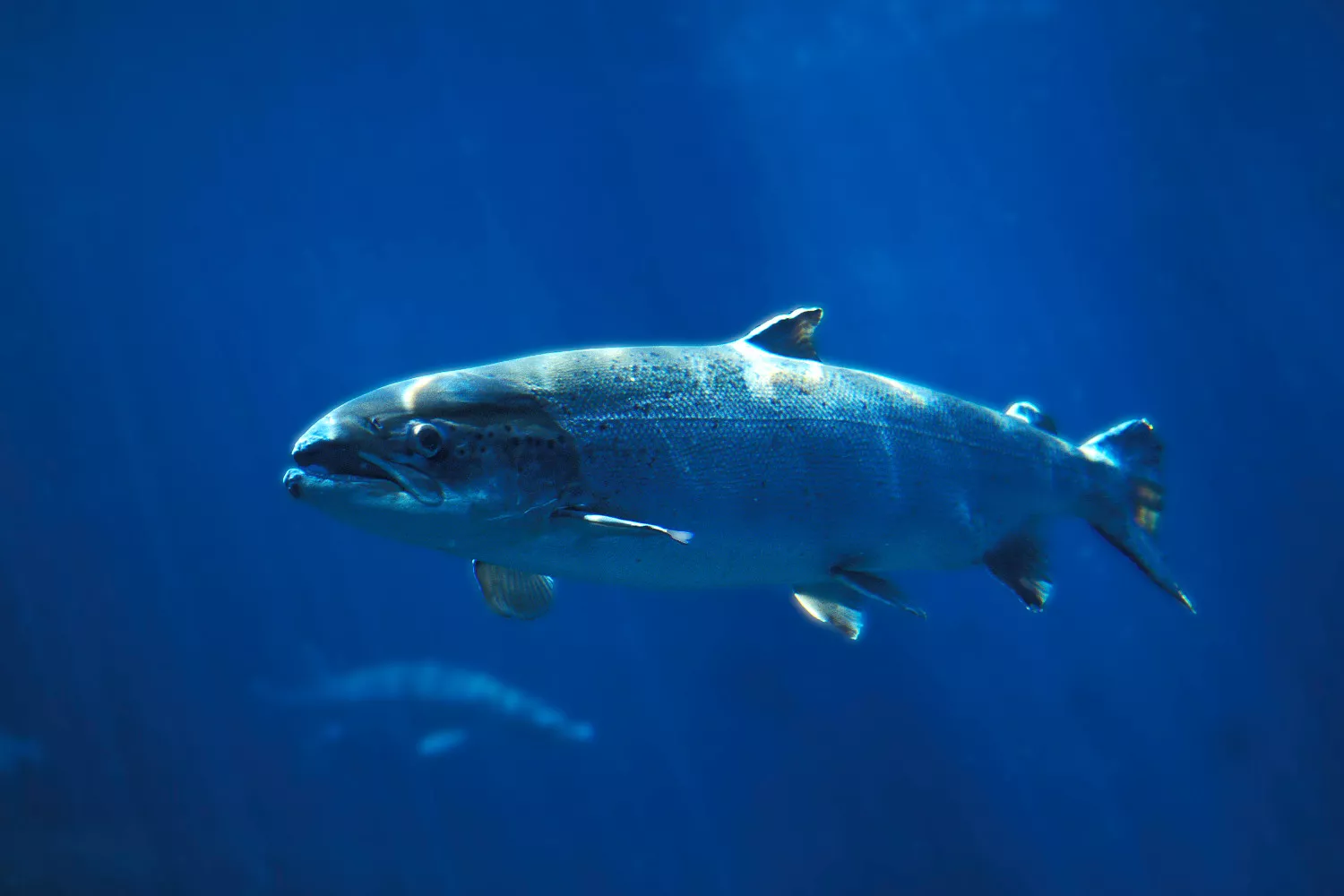
In 2021, Animal Equality released an undercover investigation into a salmon slaughterhouse in Scotland. The slaughterhouse was operated by The Scottish Salmon Company, which was linked to Co-op and Waitrose. Our investigator found:
- Salmon having their gills cut while still conscious.
- Workers violently throwing salmon onto the slaughterhouse floor where they were left to suffocate.
- Salmon being repeatedly clubbed on the head, in one instance seven times.
At the time of the investigation, Animal Equality discovered that the Scottish Government wasn’t conducting routine inspections into any fish slaughterhouses. This meant fish were completely at the mercy of workers, who are under pressure to work as quickly as possible.
Following our investigation, Government sources said that they’d start inspecting fish slaughterhouses. But months later, nothing had happened.
So in response we worked with the world’s top aquatic animal experts to produce and send a letter to the Government’s Animal Welfare Committee, which provides independent advice to the Government on actions it should take to protect animals.
Months later, we found our efforts had been successful when we discovered – via a Freedom of Information Request – that the Scottish Government had instructed the Animal Plant and Health Agency to start routine welfare-oriented inspections.
Now we’re fighting for the Government to make CCTV mandatory inside all fish slaughterhouses across the UK and for the CCTV footage to be made available to the public for scrutiny.
8. World’s Largest Food Service Provider Renews Commitment To End Gestation Crates For Pigs
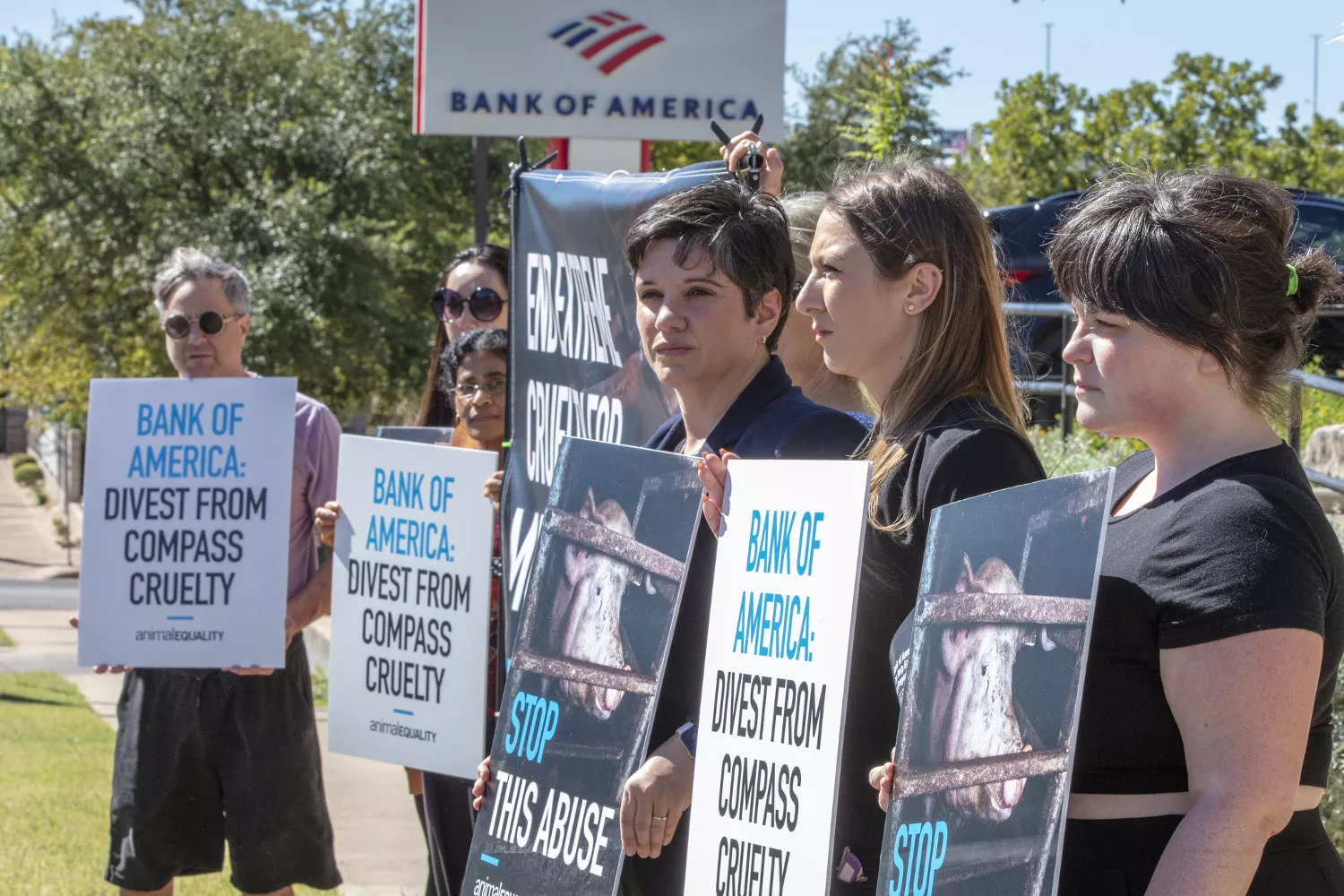
In July, Animal Equality took on the world’s largest food service provider, Compass Group, and won. The company – which provides catering for businesses, universities, and events – made a commitment in 2012 to end the use of gestation crates for mother pigs in its supply chain. But it failed to fulfill its commitment.
Gestation crates are metal cages which the meat industry uses to confine mother pigs during their late stages of pregnancy. This extreme confinement is both physically and psychologically devastating for them.
The commitment made by Compass was supposed to spare countless mother pigs from being forced inside these tiny crates, but over time, Compass Group went quiet. Instead of taking action, they delayed and delayed and eventually deleted the commitment from their website.
Animal Equality decided to take action. Our supporters sent over 2,000 emails to Compass Group’s leadership team and posted thousands of comments on Compass’s social media platforms. We informed major Compass Group clients like Google, Nike, Boeing, and Coca-Cola and we urged them to take a stand against animal cruelty by breaking ties with the company.
Bank of America was one client that remained silent on this issue, so Animal Equality supporters took to the streets in protest.
Within a week of this protest, Compass Group announced its renewed commitment to stop the use of gestation crates in its supply chain by 2023. The company also committed to stop buying eggs from hens kept in cages.
Animal Equality will be monitoring Compass closely on this to make sure they follow through with their commitment.
9. Largest Egg Producer In South America Commits To Ban Killing Of Male Chicks
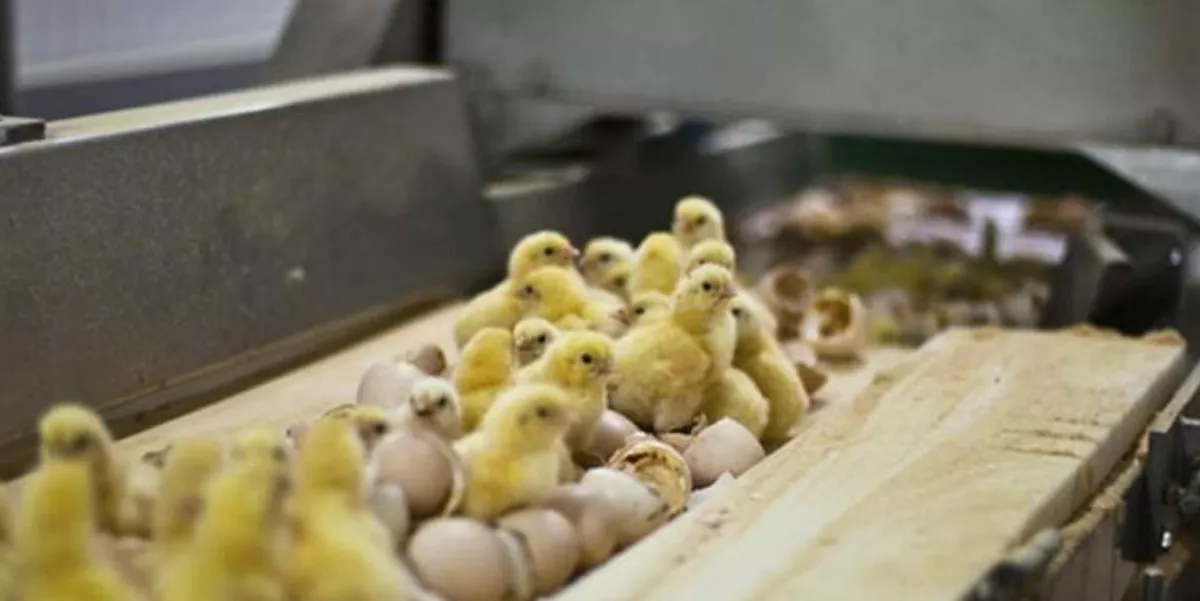
Thanks to Animal Equality’s efforts, the largest egg producer in South America, Mantiqueira, committed to ending the killing of male chicks in its supply chain.
An estimated 84 million day-old male chicks are discarded alive in Brazil every year. This is because the egg industry breeds them but considers them useless as males do not lay eggs.
But a new technology – called in-ovo sexing – offers a way to end this practice by preventing male chicks from being born in the first place.
The new technology has led to countries like Italy, France and Germany introducing bans on the killing of male chicks, which will prevent millions being gassed, crushed to death or suffocated every year.
Now Mantiqueira has committed to using in-ovo sexing technology as soon as it becomes available in Brazil, an estimated seven million male chicks will be spared from a painful death every year.
Animal Equality supporters play a huge role in convincing huge companies to make commitments like these by emailing them, sending them messages online and calling them to show that people want to see companies fighting animal cruelty.
10. Lidl chicken cruelty: Dozens of protests held throughout Europe
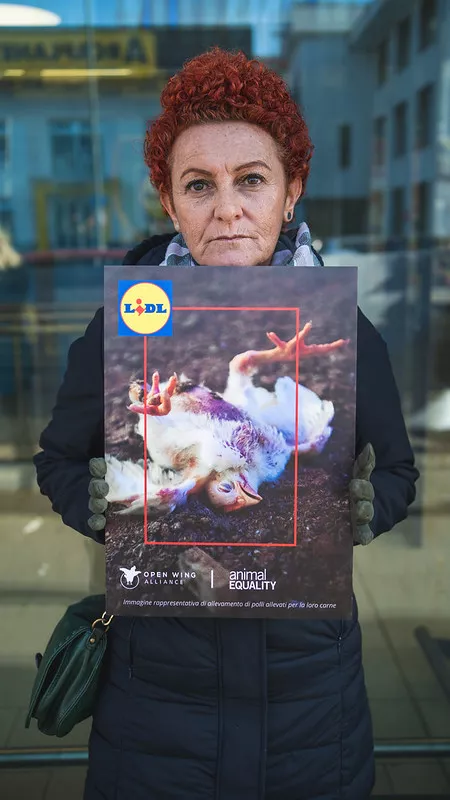
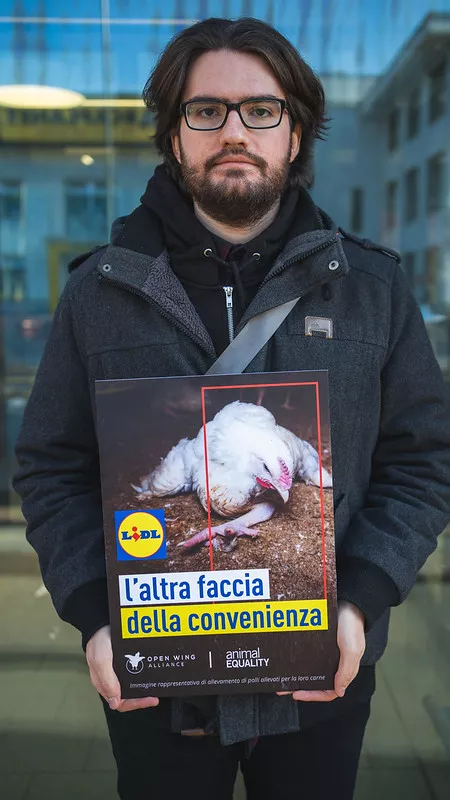
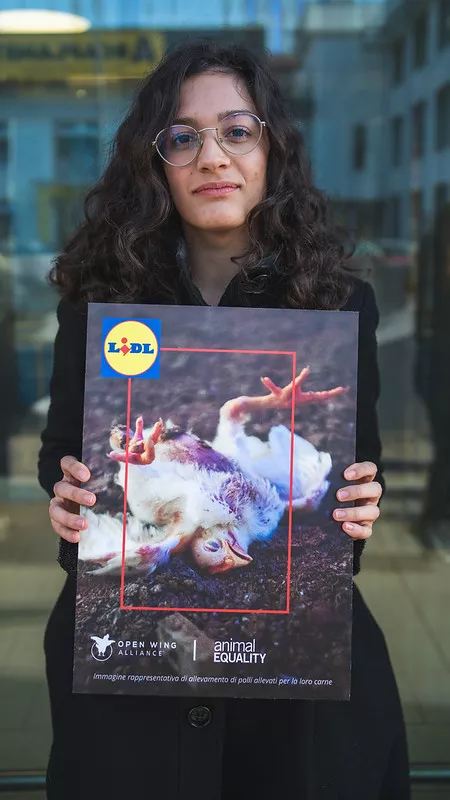
In October, Animal Equality joined more than 20 animal protection organisations across Europe to launch a new campaign demanding that the supermarket giant Lidl make a commitment to reduce extreme chicken suffering.
Lidl is one of the largest supermarket companies in Europe. Millions of chickens are raised and slaughtered every year to be sold on Lidl supermarket shelves and most of these are fast-growing chickens.
Fast-growing chickens are chickens who have been selectively bred over generations to grow faster and faster. This has significant consequences for the chickens’ health. They suffer from a number of health issues including heart attacks, organ failure and debilitating leg deformities.
Hundreds of companies have made a commitment to end the use of fast-growing chickens including some of Lidl’s direct competitors. But Lidl is refusing to make the same commitment so we’ve taken action.
In Germany alone, the country where Lidl was founded, more than 30 protests took place in a month. Other protests have been held in Italy and the UK and more action will be taken in 2023.

